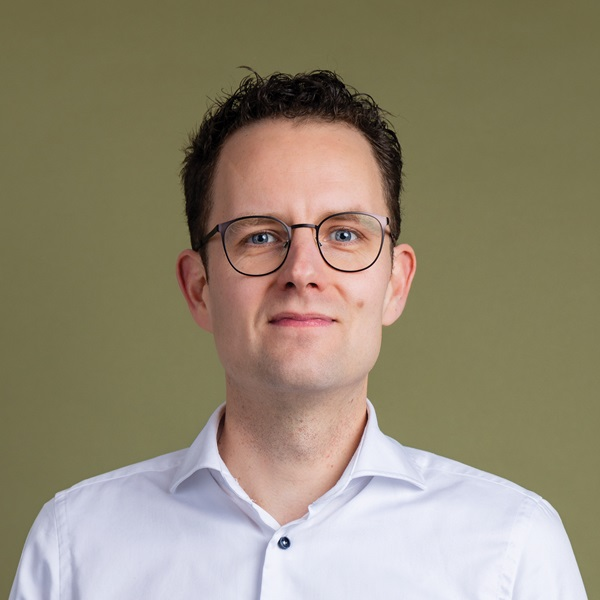Lex de Boom
Employee portrait

Lex de Boom
‘Keeping waterways navigable is a big challenge’
For Lex de Boom, project manager in Witteveen+Bos’s Deltas, Coasts and Rivers sector, there is no shortage of work. But he still finds time each week to work one day for TU Delft. After all, not every question can be answered in his daily work.
Commercial interests
‘I was born in the Rotterdam area but grew up in Friesland. That’s where I learned to sail, which I still really enjoy doing. But choosing civil engineering ultimately came down to a process of elimination. It was only during my degree that I found out what most appealed to me: hydraulic engineering. My graduation project focused on flood protection, but afterwards I discovered that I liked port and shipping projects even more. I find the work more dynamic and the lead times are shorter. You also have to take commercial interests into account. A quay wall under construction means no revenue for the terminal operator, so our schedules are often very tight, even though we’re designing technically complex things. I enjoy managing those competing forces.’
No shortage of work
‘Shipping is crucial to the sustainable energy supply we envision for the future. Ships already play an important role in the construction of wind farms and solar parks, but in the future they’ll also be important for transporting hydrogen, to name just one example. But shipping is affected by climate change too, with low water levels bringing it to a halt. Keeping waterways navigable, therefore, is a big challenge – there’s no shortage of work. As a project manager, it’s up to me to keep the client’s goal in focus and stimulate everyone in the team to come up with efficient and high-quality solutions. I enjoy including young talent in that process so they get the opportunity to gain experience. Because to be able to provide good advice, you need to have had practical experience.’

Educational development
‘Students help us in return. In addition to my work at Witteveen+Bos, I work on average one day a week at TU Delft in its Rivers and Ports section. I’m involved in developing courses and also give lectures and supervise graduation projects. It’s a nice change from my daily work. And a useful one: it helps us get answers we don’t have time to find ourselves. Recently, for example, two students have been researching abnormal shipping behaviour. Their research question is whether we can use ships’ location data to uncover suspicious or undesirable situations. A relevant question when it comes to preventing accidents but also in light of increasing water-based sabotage of, for example, data and power cables. The students have already taken important steps towards making this possible.’
More information?
